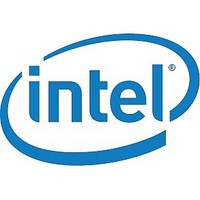FW82801DBM S L6DN Intel, FW82801DBM S L6DN Datasheet - Page 128

FW82801DBM S L6DN
Manufacturer Part Number
FW82801DBM S L6DN
Description
Manufacturer
Intel
Datasheet
1.FW82801DBM_S_L6DN.pdf
(615 pages)
Specifications of FW82801DBM S L6DN
Lead Free Status / RoHS Status
Not Compliant
- Current page: 128 of 615
- Download datasheet (16Mb)
Functional Description
5.8.4.2
5.8.5
5.8.5.1
5.8.5.2
5.8.5.3
128
Note: PSB Interrupt Delivery compatibility with processor clock control depends on the processor, not
Registers and Bits Associated with PCI Interrupt Delivery
Capabilities Indication
The capability to support PCI interrupt delivery is indicated via ACPI configuration techniques.
This involves the BIOS creating a data structure that gets reported to the ACPI configuration
software. The OS reads the PRQ bit in the APIC Version Register to see if the ICH4 is capable of
support PCI-based interrupt messages. As a precaution, the PRQ bit is not set if the XAPIC_EN bit
is not set.
Interrupt Message Register
The PCI devices all write their message into the IRQ Pin Assertion Register, which is a memory-
Mapped register located at the APIC base memory location + 20h.
Processor System Bus Interrupt Delivery
Theory of Operation
For processors that support Processor System Bus interrupt delivery, the ICH4 has an option to let
the integrated I/O APIC behave as an I/O (x) APIC. In this case, it will deliver interrupt messages
to the processor in a parallel manner, rather than using the I/O APIC serial scheme. The ICH4 is
intended to be compatible with the I/O (x) APIC specification, Rev 1.1.
This is done by the ICH4 writing (via the Hub Interface) to a memory location that is snooped by
the processor(s). The processor(s) snoop the cycle to know which interrupt goes active.
The processor enables the mode by setting the I/O APIC Enable (APIC_EN) bit and by setting the
DT bit in the I/O APIC ID register.
The following sequence is used:
the ICH4.
Edge-Triggered Operation
In this case, the “Assert Message” is sent when there is an inactive-to-active edge on the interrupt.
Level-Triggered Operation
In this case, the “Assert Message” is sent when there is an inactive-to-active edge on the interrupt.
If after the EOI the interrupt is still active, then another “Assert Message” is sent to indicate that the
interrupt is still active.
1. When the ICH4 detects an interrupt event (active edge for edge-triggered mode or a change for
2. Internally, the ICH4 requests to use the bus in a way that automatically flushes upstream
3. The ICH4 then delivers the message by performing a write cycle to the appropriate address
level-triggered mode), it sets or resets the internal IRR bit associated with that interrupt.
buffers. This can be internally implemented similar to a DMA device request.
with the appropriate data. The address and data formats are described below in
Intel
®
82801DBM ICH4-M Datasheet
Section
5.8.5.5.
Related parts for FW82801DBM S L6DN
Image
Part Number
Description
Manufacturer
Datasheet
Request
R

Part Number:
Description:
I/O Controller Hub 4 Mobile
Manufacturer:
Intel Corporation
Datasheet:

Part Number:
Description:
Manufacturer:
Intel
Datasheet:

Part Number:
Description:
Manufacturer:
Intel
Datasheet:

Part Number:
Description:
Microprocessor: Intel Celeron M Processor 320 and Ultra Low Voltage Intel Celeron M Processor at 600MHz
Manufacturer:
Intel Corporation

Part Number:
Description:
Intel 82550 Fast Ethernet Multifunction PCI/CardBus Controller
Manufacturer:
Intel Corporation
Datasheet:

Part Number:
Description:
Intel StrataFlash memory 32 Mbit. Access speed 120 ns
Manufacturer:
Intel Corporation
Datasheet:

Part Number:
Description:
Intel StrataFlash memory 32 Mbit. Access speed 120 ns
Manufacturer:
Intel Corporation
Datasheet:

Part Number:
Description:
Intel StrataFlash memory 64 Mbit. Access speed 150 ns
Manufacturer:
Intel Corporation
Datasheet:

Part Number:
Description:
Intel StrataFlash memory 32 Mbit. Access speed 100 ns
Manufacturer:
Intel Corporation
Datasheet:

Part Number:
Description:
DA28F640J5A-1505 Volt Intel StrataFlash Memory
Manufacturer:
Intel Corporation
Datasheet:

Part Number:
Description:
5 Volt Intel StrataFlash?? Memory
Manufacturer:
Intel Corporation
Datasheet:

Part Number:
Description:
5 Volt Intel StrataFlash?? Memory
Manufacturer:
Intel Corporation

Part Number:
Description:
Intel 6300ESB I/O Controller Hub
Manufacturer:
Intel Corporation
Datasheet:










